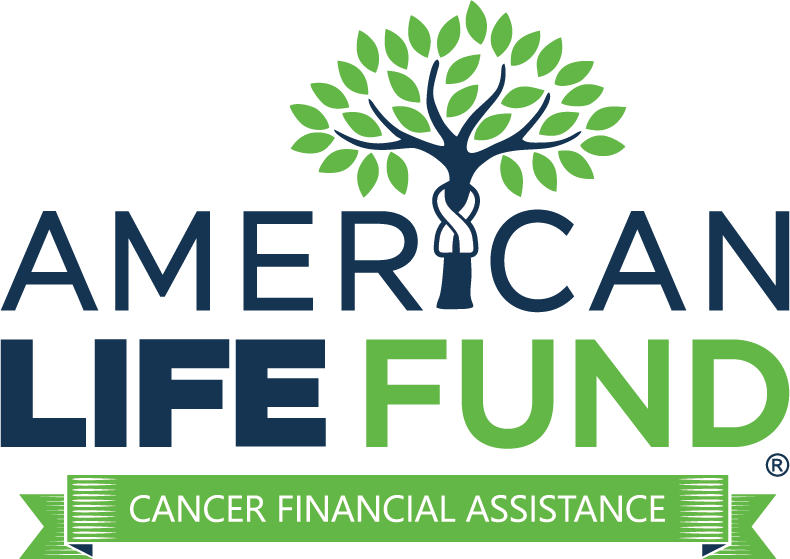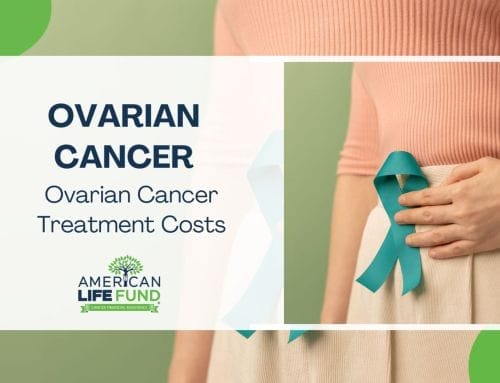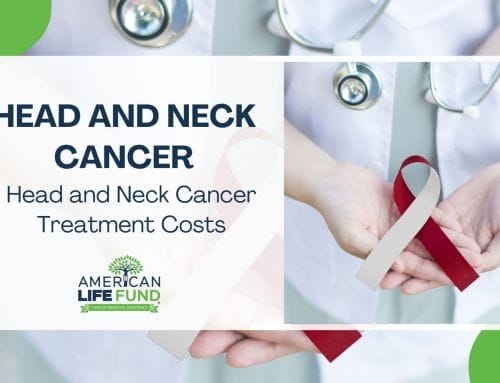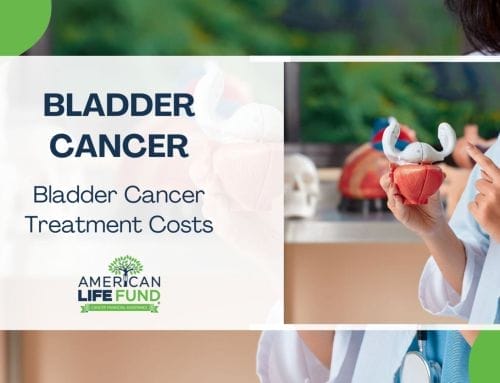Understanding the costs of gastric cancer treatment is necessary for anyone dealing with this condition. Gastric cancer, or stomach cancer, can lead to high medical bills that increase as the disease progresses. Catching the cancer early can often lead to less expensive treatments, highlighting the importance of regular screenings. As the cancer advances, treatments like chemotherapy, radiation therapy, and surgery become necessary and more costly.
It’s necessary for patients and their families to know these potential costs for better financial planning. Good insurance coverage can help reduce these expenses significantly, but it’s important to know exactly what your insurance covers and any possible out-of-pocket costs.
Being informed helps patients make the best decisions and find the right support, reducing the stress of managing the financial aspects of stomach cancer treatment.
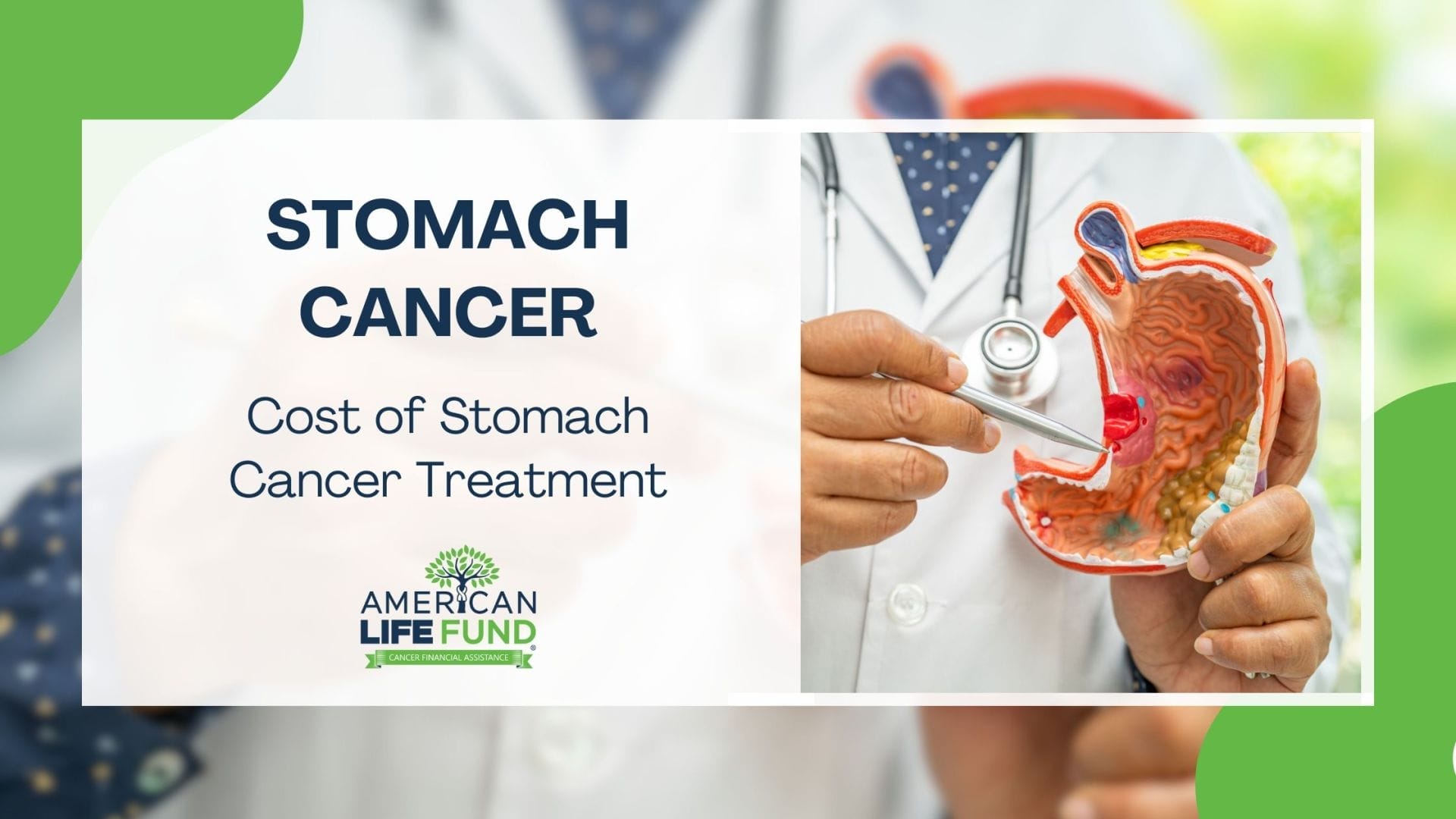
Key Takeaways
- Global Impact: Gastric cancer is a significant contributor to global cancer-related deaths.
- Financial Struggles: Profound challenges in managing stomach cancer treatment cost.
- Empowerment and Support: Empowering individuals facing stomach cancer through informed decisions and support.
- Cost Management Tips: Practical tips for effective stomach cancer treatment cost management.
Understanding the Cost of Gastric Cancer Treatment
Gastric cancer, also known as stomach cancer, not only takes a toll on one’s health but also presents a significant economic burden for patients and their families. In this section, we will discuss the financial aspects of dealing with gastric cancer, aiming to shed light on the various financial considerations that come into play during treatment.
Stages of Stomach Cancer Diagnosis and Their Impact on Costs
A stomach cancer diagnosis can unfold through different stages, each carrying distinct financial implications.
Early Detection and Diagnosis:
- Early diagnosis often involves less invasive and more cost-effective procedures, such as endoscopic mucosal resection.
- Timely detection can lead to more manageable treatment costs, underlining the importance of regular screenings.
Locally Advanced Stages:
- As cancer progresses to locally advanced stages, the complexity of treatment increases, impacting the associated costs.
- Aggressive treatments, such as adjuvant chemotherapy and radiation therapy, become necessary, contributing to the overall medical expenditure.
Metastatic Disease:
- The advanced stage of metastatic disease demands more intensive and costly treatment regimens, such as targeted therapy.
- Understanding the financial challenges at this stage is crucial for patients and their families to make informed decisions.
Types of Treatments and Their Costs
Gastric cancer treatment encompasses various options, each with its financial considerations.
Surgery:
- Surgical interventions, such as endoscopic mucosal resection or more extensive procedures, incur costs related to hospital stays, surgeon fees, and postoperative care.
Chemotherapy and Radiation Therapy:
- These treatment modalities come with associated costs for medications, clinic visits, and specialized equipment usage in the case of radiation therapy.
Targeted Therapy:
- Targeted therapy, while effective, can be expensive. Understanding its role and costs is crucial in the decision-making process.
Insurance Coverage and Its Role in Treatment Costs
Navigating the financial landscape of gastric cancer treatment involves understanding the role of insurance coverage.
Health Insurance:
- Adequate health insurance coverage can significantly alleviate the financial burden on gastric cancer patients.
- Knowing the extent of coverage for various treatments and associated costs is essential for informed financial planning.
Out-of-Pocket Costs:
- Despite insurance coverage, out-of-pocket expenses may still arise. Understanding and planning for these costs is vital for financial preparedness.
Navigating Insurance Challenges:
- This section will provide insights into common challenges gastric cancer patients may face with insurance, offering tips on advocacy and seeking financial assistance when needed.
By understanding these financial aspects, we aim to empower patients and their families with the information to make informed decisions throughout their gastric cancer treatment.
Direct and Indirect Expenses in Gastric Cancer Treatment
Understanding the financial dimensions of treating gastric cancer.
Direct Medical Costs
Direct medical costs associated with gastric cancer treatment encompass crucial expenditures directly related to medical care.
Diagnostic Procedures:
- Early detection of gastric cancer involves diagnostic procedures, including endoscopic mucosal resection, contributing to initial medical costs.
- Advanced diagnostic tests may be necessary for accurate staging and treatment planning, incurring additional expenses.
Treatment Modalities:
- Surgical interventions, chemotherapy, radiation therapy, and targeted therapy involve specific costs, including medications, hospital stays, and specialized equipment usage.
- The choice of treatment and its intensity directly impact the overall medical expenses incurred by gastric cancer patients.
Follow-Up Care:
- Ongoing monitoring and follow-up care contribute to direct medical costs, ensuring the management of potential complications and disease progression.
Indirect Expenses
Beyond direct medical costs, indirect expenses in gastric cancer treatment encompass a broader spectrum of financial challenges.
Out-of-Pocket Costs:
- Patients often face out-of-pocket expenses for medications, co-payments, and other medical services not fully covered by insurance.
- These costs can accumulate and contribute significantly to the overall economic burden on patients and their families.
Loss of Income:
- The potential loss of income during treatment, especially for those undergoing extensive therapies, adds to the indirect financial challenges.
- Balancing work responsibilities with treatment demands becomes critical to managing indirect expenses.
Quality of Life:
- Indirect expenses extend to the impact on patients and their families’ overall quality of life, including emotional well-being and day-to-day living adjustments.
Understanding both direct medical costs and indirect expenses is crucial for a comprehensive overview of the economic burden faced by gastric cancer patients. This awareness empowers individuals and families to make informed decisions and seek support where needed throughout the treatment process.

Financial Assistance Options for Gastric Cancer Patients
Unlocking support resources in the fight against gastric cancer.
Government Programs
Government programs are crucial in providing financial assistance to gastric cancer patients and ensuring access to necessary treatments and support.
Medicare and Medicaid:
- Medicare and Medicaid are federally funded programs that offer health coverage for eligible individuals, including gastric cancer patients.
- Understanding the eligibility criteria and the coverage provided is essential for accessing financial support.
Social Security Disability Insurance (SSDI) and Supplemental Security Income (SSI):
- Patients facing challenges in continuing work due to gastric cancer may be eligible for SSDI or SSI benefits, providing financial assistance during the treatment period.
State-Specific Assistance Programs:
- Various states offer additional assistance programs to support patients facing financial hardships, such as assistance with prescription drug costs and transportation.
Nonprofit Organizations and Advocacy Groups
Nonprofit organizations and advocacy groups are instrumental in providing financial aid, emotional support, and resources to gastric cancer patients.
Patient Assistance Programs:
- Many nonprofits administer patient assistance programs that help cover the costs of medications, treatments, and other related expenses.
- Researching and reaching out to these organizations can uncover valuable financial support options.
Financial Counseling Services:
- Nonprofits often offer financial counseling services to help patients and their families navigate the complex landscape of medical bills, insurance claims, and available financial assistance.
Emotional Support:
- Beyond financial assistance, advocacy groups provide emotional support, connecting patients with others facing similar challenges and fostering a sense of community.
Clinical Trials
Engaging in clinical trials contributes to advancements in gastric cancer research and provides financial benefits for participants.
Treatment at Reduced or No Cost:
- Clinical trials may offer experimental treatments at reduced or no cost to participants, lessening the financial burden associated with traditional treatment methods.
Travel and Lodging Support:
- Some clinical trials provide financial assistance for travel and lodging expenses, ensuring that patients can participate regardless of location.
Access to Cutting-Edge Therapies:
- Participating in clinical trials provides access to cutting-edge therapies that may not be available through standard treatments, offering a unique opportunity for patients.
Understanding and exploring these financial assistance options empowers gastric cancer patients to navigate their treatment more easily and focus on their health and well-being.

Tips for Managing Stomach Cancer Treatment Costs
Empowering patients with practical financial guidance.
Communicating with Healthcare Providers
Effective communication with healthcare providers is essential for understanding and managing stomach cancer treatment costs.
Open Dialogue:
- Establish an open and honest dialogue with your healthcare team about your financial concerns and limitations.
- Discussing treatment options, potential costs, and available financial assistance early in the process can help plan.
Financial Counseling Services:
- Many healthcare providers offer financial counseling services to assist patients in navigating the complexities of medical bills, insurance claims, and available financial aid.
Treatment Plans Aligned with Budgets:
- Work with your healthcare team to develop gastric cancer treatment plans that align with your budget and financial capabilities.
- Understanding each treatment option’s direct and indirect expenses helps make informed decisions.
Understanding Health Insurance Benefits
Understanding your health insurance benefits is crucial for effectively managing stomach cancer treatment costs.
Reviewing Coverage:
- Thoroughly review your health insurance policy to understand the extent of coverage for diagnostic procedures, treatments, medications, and other associated costs.
- Identify any limitations or exclusions that may impact your out-of-pocket expenses.
Preauthorization and Network Providers:
- Ensure that necessary treatments and procedures are preauthorized by your insurance company to avoid unexpected denials.
- Use network providers whenever possible to maximize coverage and minimize out-of-pocket costs.
Appealing Denials:
- In case of claim denials, be proactive in appealing the decision. Understanding the appeals process and working with your healthcare provider can potentially overturn denials.
Exploring Generic Drugs and Discounts
Exploring cost-saving options, such as generic drugs and discounts, can significantly alleviate stomach cancer treatment expenses.
Generic Drug Options:
- Discuss with your healthcare provider the possibility of using generic versions of prescribed medications, which are often more affordable but equally effective.
- Generic drugs can substantially reduce out-of-pocket costs.
Prescription Assistance Programs:
- Explore prescription assistance programs offered by pharmaceutical companies or nonprofit organizations that provide discounts or free medications to eligible patients.
- Researching and applying for these programs can result in substantial cost savings.
Pharmacy Discount Programs:
- Many pharmacies offer discount programs that provide savings on medications not covered by insurance.
- Inquire about such programs and explore available discounts to minimize medication costs.
Educating yourself with these practical tips for managing stomach cancer treatment costs ensures that financial considerations do not hinder your focus on recovery. Open communication, understanding insurance benefits, and exploring cost-saving options contribute to a more manageable financial journey during cancer treatment.

Viatical Settlements: A Financial Resource for Stomach Cancer Patients
Stomach cancer patients and their families often encounter financial challenges during their treatment. Viatical settlements, like those provided by American Life Fund, offer an alternative financial solution worth considering.
Understanding Viatical Settlements
A viatical settlement involves the sale of a life insurance policy to a third party for a lump sum payment. This option is usually considered by individuals with life-threatening illnesses, such as stomach cancer, who need immediate access to funds for medical expenses or other financial obligations.
American Life Fund’s Role
American Life Fund specializes in viatical settlements, offering support to individuals with serious illnesses, including stomach cancer. Choosing a viatical settlement enables patients to receive a lump sum from their life insurance, easing financial pressures without waiting for traditional life insurance payouts.
Benefits for Renal Cancer Patients
- Immediate Financial Support: Viatical settlements provide quick access to funds, which is crucial during the demanding times of gastric cancer treatment.
- Versatile Use of Funds: The received lump sum can cover various needs, from medical bills to alternative treatments or enhancing quality of life.
- No Repayment Required: Viatical settlements are not loans, so there’s no need to repay the amount received, allowing patients to use the funds freely.
Considerations Before Choosing a Viatical Settlement
- Effect on Life Insurance: Opting for a viatical settlement alters your life insurance coverage, so it’s important to assess the benefits and potential drawbacks carefully.
- Seeking Professional Advice: Consulting with financial advisors, healthcare professionals, and legal experts is recommended to understand the implications of a viatical settlement fully.
Viatical settlements are not a one-size-fits-all solution, but they can be a valuable financial tool for stomach cancer patients in need of prompt financial relief. American Life Fund provides guidance and empathetic support to individuals exploring their financial options during challenging times.
Summary
Stomach cancer poses a substantial financial burden, but a clear understanding of key factors, including stages of diagnosis, treatment options, and insurance coverage, empowers patients to manage these costs effectively. By considering both direct and indirect medical expenses, exploring avenues such as government programs, nonprofit support, and clinical trials, and adhering to practical tips for financial management, individuals facing stomach cancer can make informed decisions and alleviate the economic strain. Remember, support resources are accessible to assist you throughout this journey, ensuring you’re not alone in navigating the financial challenges of stomach cancer treatment.

Frequently Asked Questions
What are the average treatment costs for stomach cancer?
Stomach cancer treatment costs vary widely, influenced by factors like cancer stage, treatment types, and insurance coverage. On average, expenses can range from several thousand to tens of thousands of dollars.
How does health insurance play a role in managing stomach cancer treatment costs?
Health insurance is a crucial factor in mitigating gastric cancer treatment expenses. Adequate coverage can significantly alleviate the financial burden. However, patients should understand the extent of coverage for different treatments and associated costs.
Are there government programs to assist with stomach cancer treatment costs?
Yes, various government programs offer financial assistance to stomach cancer patients. Programs like Medicare and Medicaid provide health coverage, and additional state-specific assistance programs may offer support with prescription drug costs and transportation.
What are viatical settlements, and how can they help with financial challenges during stomach cancer treatment?
Viatical settlements involve selling a life insurance policy for a lump sum payment. This can provide immediate funds for medical expenses or financial obligations, offering an alternative financial resource during challenging times like stomach cancer treatment.
How can patients explore clinical trials as a potential cost-saving option?
Engaging in clinical trials not only contributes to research but may also offer reduced or no-cost treatments. Patients can inquire about ongoing trials, their eligibility, and associated support for travel and lodging expenses.
What are the common challenges patients face with health insurance, and how can they navigate them?
Patients may encounter challenges like claim denials or limitations in coverage. Navigating these challenges involves effective communication with healthcare providers, understanding the appeals process, and seeking assistance from financial counseling services.
What are some practical tips for managing stomach cancer treatment costs effectively?
Practical tips include open communication with healthcare providers about financial concerns, understanding health insurance benefits, exploring cost-saving options like generic drugs, and researching pharmacy discount programs.
How can patients access emotional support during their stomach cancer treatment?
Emotional support is crucial. Patients can connect with nonprofit organizations and advocacy groups, which often offer financial assistance and counseling services, creating a sense of community among individuals facing similar challenges.
